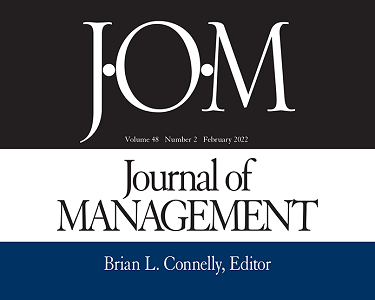Good, Bad, and Ugly Leadership Patterns: Implications for Followers’ Work-Related and Context-Free Outcomes
Academic Publications

Author(s): Hancock, A. J., Gellatly, I. R., Walsh, M. M., Arnold, K. A., & Connelly, C. E.
Date: 2023
Resource: Journal of Management
This research responds to calls for a more integrative approach to leadership theory by identifying subpopulations of followers who share a common set of perceptions with respect to their leader’s behaviors. Six commonly researched styles were investigated: abusive supervision, transformational leadership (TFL), contingent reward (CR), passive and active management-by-exception (MBE-P and MBE-A, respectively), and laissez faire/avoidant (LF/A). Study hypotheses were tested with data from four independent samples of working adults, three from followers (N = 855) and a validation sample of leaders (N = 505). Using latent profile analysis, three pattern cohorts emerged across all four samples. One subpopulation of followers exhibited a constructive pattern with higher scores on TFL and CR relative to other styles. Two cohorts exhibited destructive patterns, one where the passive styles of MBE-A, MBE-P and LF/A were high relative to the other styles (passive) and one where the passive styles co-occurred with abusive supervision (passive-abusive). Drawing on conservation of resources theory, we confirmed differential associations with work-related (i.e., burnout, vigor, perceived organizational support and affective organizational commitment) and context-free (i.e., physical health and psychological well-being) outcomes. The passive-abusive pattern was devastating for physical health, yet passiveness without abuse was damaging for psychological well-being. Interestingly, we find a clear demarcation between passiveness as “benign neglect” and passiveness as an intentional and deliberate form of leadership aimed at disrupting or undermining followers—hence, the two faces of passiveness: “bad” and “ugly.” We discuss the novel insights offered by a pattern (person)-oriented analytical strategy and the broader theoretical and practical implications for leadership research.
Go to journal page View all resourcesRelated Research Areas: Leadership & Well-being